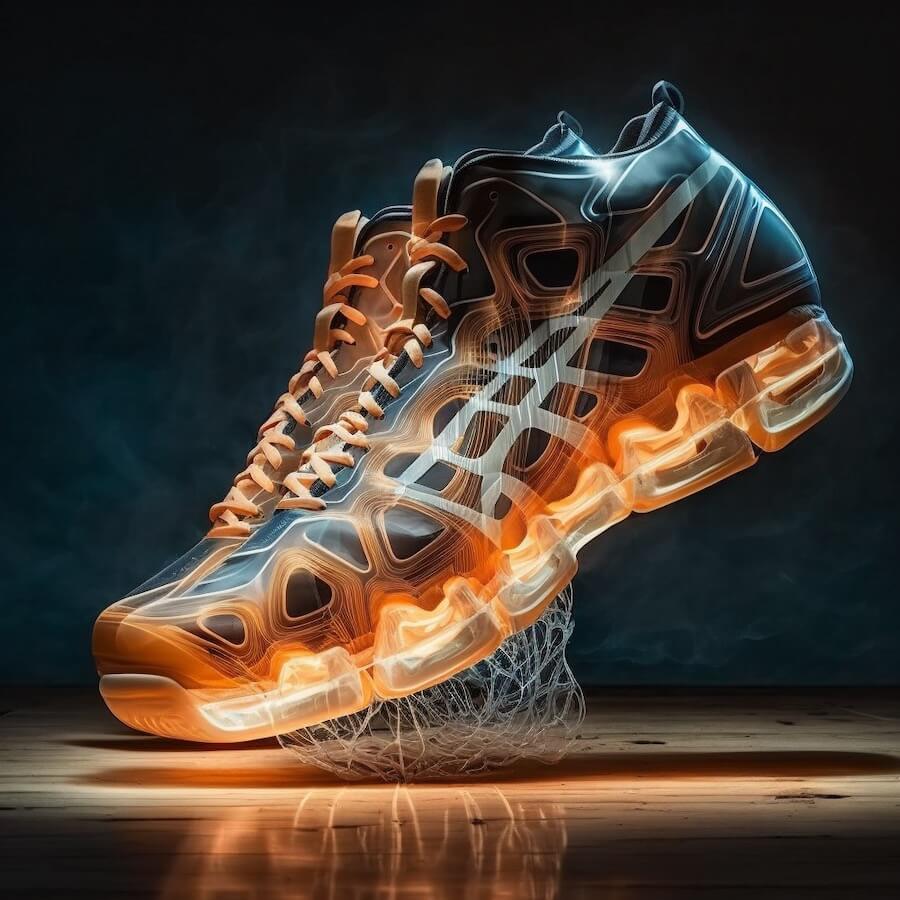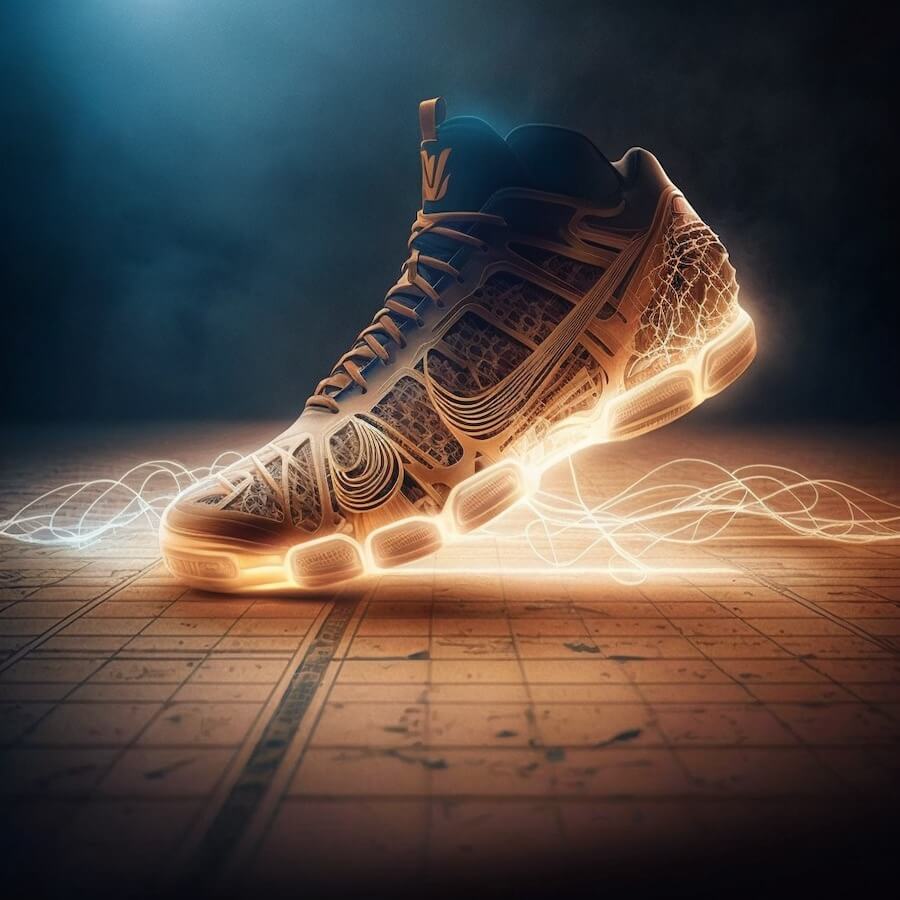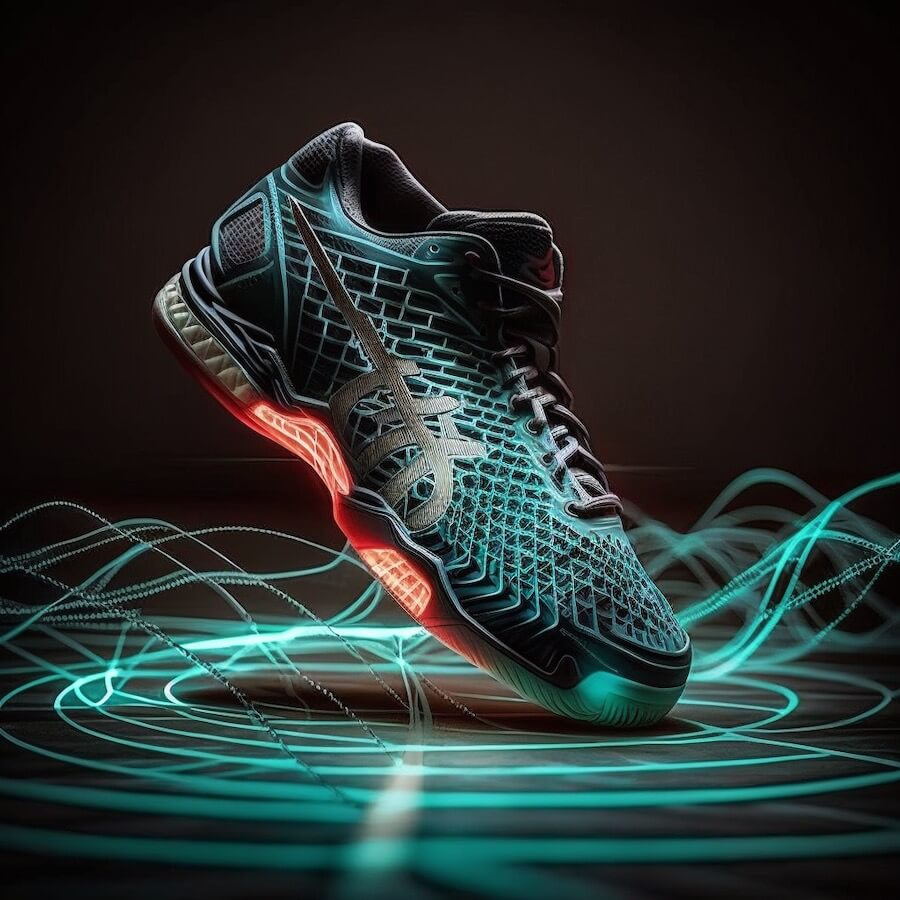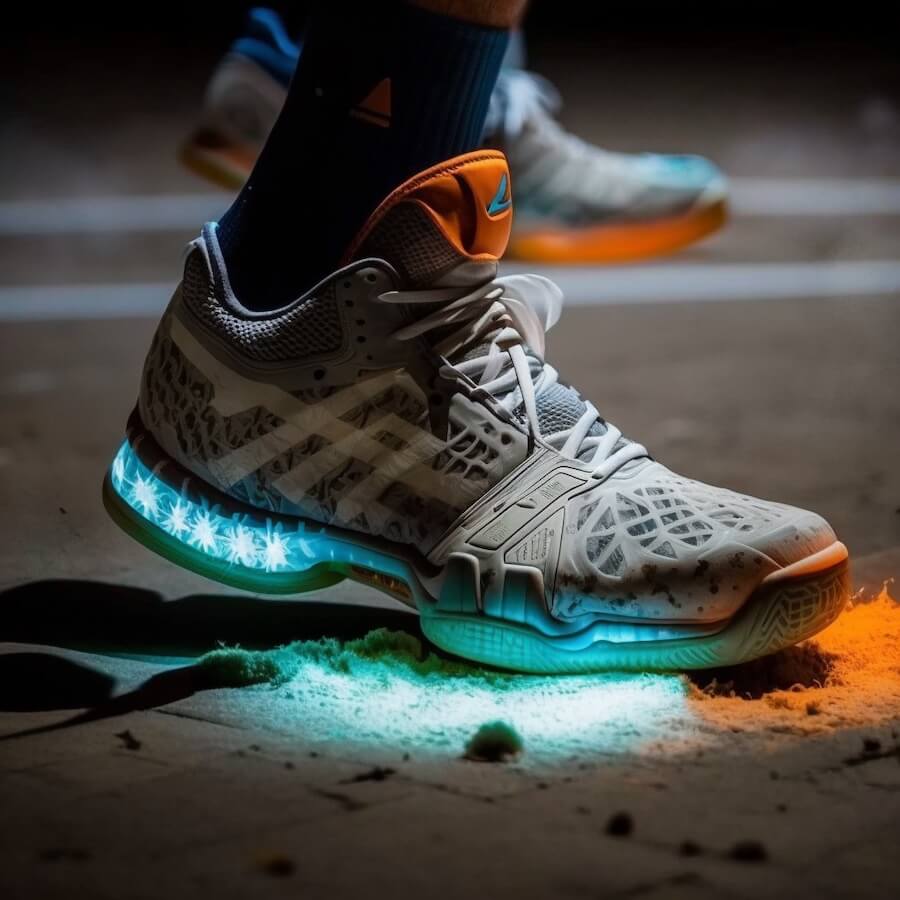
Are You Wearing the Wrong Volleyball Shoes? Shocking Evidence Reveals the Truth!
Volleyball is a sport that requires lightning-fast reflexes, explosive power, and rock-solid stability. Footwear plays a critical role in helping players perform at their peak, and choosing the right shoes can mean the difference between victory and defeat.
But do you really know what you’re putting on your feet when you hit the court?
Despite widespread belief, the truth is that many popular misconceptions about volleyball shoes are simply not supported by science. From claims that expensive shoes provide better grip and support to the idea that lightweight shoes increase speed and agility, there’s a lot of misinformation out there.
In this explosive article, we’ll put the volleyball shoe market under the microscope and separate fact from fiction. You’ll discover the truth about the different types of shoes available, the anatomy of the foot, and the impact of footwear on performance. We’ll also explore the role of personal preference, the importance of proper fit, and the latest scientific evidence on the topic.
Ready to be shocked and amazed? Let’s get started and uncover the truth about volleyball shoes!
Anatomy of the Foot and Volleyball Shoes

The anatomy of the foot is complex, with bones, muscles, tendons, and ligaments all working together to support and move the body. Understanding the anatomy of the foot is important when it comes to choosing the right footwear, as different types of shoes can impact foot mechanics and performance in different ways.
When playing volleyball, players are constantly jumping, landing, and pivoting, putting a great deal of stress on their feet and ankles. Proper footwear can help to absorb the shock of these movements and provide support and stability, reducing the risk of injury.
There are several different types of volleyball shoes available on the market, each with its own unique benefits and drawbacks. Some of the most common types of volleyball shoes include:
- Cross-training shoes: These shoes are designed to provide support and stability for a variety of different activities, including volleyball. They are often heavier and bulkier than other types of volleyball shoes, but they provide excellent support and protection for the feet and ankles.
- Volleyball shoes: These shoes are specifically designed for volleyball, with features such as extra padding, lateral support, and enhanced grip. Volleyball shoes are typically lighter and more flexible than cross-training shoes, making them ideal for players who need quick, agile movements on the court.
- Sand volleyball shoes: These shoes are designed specifically for playing volleyball on sand. They are typically lighter and more flexible than other types of volleyball shoes, with enhanced grip to prevent slipping in the sand.
There have been a number of scientific studies conducted on the impact of volleyball shoes on foot mechanics and performance. These studies have found that different types of shoes can have different impacts on performance, with some shoes providing better support and stability, while others may increase speed and agility.
One study, for example, found that cross-training shoes provided better stability and support than volleyball shoes, while another study found that volleyball shoes increased speed and agility on the court. These findings suggest that the choice of volleyball shoe is not a one-size-fits-all decision, and that players should consider their individual needs and preferences when choosing the right footwear.
In conclusion, the anatomy of the foot plays a crucial role in the success of a volleyball player, and the right footwear can make all the difference in terms of performance and injury prevention. From cross-training shoes to sand volleyball shoes, there are a number of different types of volleyball shoes available, each with its own unique benefits and drawbacks. When choosing the right footwear, players should consider their individual needs and preferences, as well as the latest scientific evidence, to make an informed decision.

The Personal Factor: Choosing the Right Volleyball Shoes for You
When it comes to choosing the right volleyball shoes, there are many factors to consider. Personal preference and comfort are among the most important. Every player is unique, and the shoes that work best for one person may not be the best choice for another. This is why it’s so important to try on different shoes and find the ones that work best for you.
Playing Style and Position
Your playing style and position on the court can impact the effectiveness of different types of volleyball shoes. For example, a player who spends a lot of time jumping and diving will benefit from shoes with good shock absorption, while a player who spends more time running and jumping will need shoes that provide good stability and support.
Personal Biomechanics
Personal biomechanics also play a role in determining which shoes are best for you. This refers to the way your body moves and the way your feet interact with the ground. For example, if you have flat feet, you may need shoes with extra arch support, while if you have high arches, you may need shoes with more cushioning.

The Importance of Fit
The fit of your volleyball shoes is also important for performance. Shoes that are too tight can cause discomfort and restrict movement, while shoes that are too loose can cause instability and lead to injury. It’s important to try on different shoes and walk around in them to determine which ones fit best.
In conclusion, when choosing volleyball shoes, it’s important to consider your personal preferences, playing style, position, and biomechanics. By taking the time to try on different shoes and find the best fit for you, you’ll be able to perform at your best on the court.
The Final Verdict: Separating Fact from Fiction in Volleyball Shoes
The world of volleyball shoes is full of myths, legends, and misconceptions. From the belief that expensive shoes provide better grip and support, to the notion that lightweight shoes increase speed and agility, there are a multitude of claims about what makes the perfect volleyball shoe. But what does the scientific evidence have to say about these claims?
The truth is, the impact of volleyball shoes on performance is a complex and multi-faceted issue. While certain shoes may be better suited to specific playing styles or positions, personal biomechanics and comfort are equally important factors to consider. There is no one-size-fits-all solution when it comes to volleyball shoes, and what works best for one player may not be the best choice for another.

That being said, there are certain key findings that can be gleaned from the scientific literature on this subject. For example, studies have shown that shoes with good grip and stability can help players maintain better balance on the court, which in turn can improve performance. Similarly, shoes with good shock absorbency can help reduce the risk of injury to the feet, legs, and knees.
However, the impact of volleyball shoes on performance is not just about the shoes themselves. Proper fit is also critical to ensuring that shoes perform as they should. Shoes that are too tight or too loose can cause discomfort, affect balance, and even lead to injury.
In conclusion, choosing the right volleyball shoes is a complex process that requires players to consider both scientific evidence and personal preference. The best way to ensure that you choose the right shoes for your needs is to try on different options, test them on the court, and choose the shoes that provide the best balance of comfort, support, and performance. So don’t be swayed by the latest marketing claims and hype – trust in the power of personal experience and the scientific evidence to guide your decision-making process when choosing your volleyball shoes.
Debunking Myths and Finding Truths: The Ultimate Volleyball Shoe FAQ
Volleyball shoes are a crucial piece of equipment for players of all levels, but there are many myths and misconceptions about what makes a great pair of volleyball shoes. In this section, we’ll answer some of the most commonly asked questions about volleyball shoes and help you separate fact from fiction.
Do expensive volleyball shoes make a difference?
The price of a pair of volleyball shoes doesn’t necessarily determine its quality or performance. While expensive shoes may come with more advanced features and better materials, they’re not always the best choice for every player. It’s important to consider your individual playing style, position, and biomechanics, as well as the surface you’ll be playing on, when choosing a pair of volleyball shoes.
Do professional volleyball players wear different shoes for different surfaces?
Yes, many professional volleyball players choose to wear different shoes for different playing surfaces. Indoor volleyball is typically played on a hard, smooth surface, while outdoor volleyball is often played on sand. The type of shoe that is best suited to each surface can vary, and many players opt to have a separate pair of shoes for indoor and outdoor play.

Do volleyball shoes affect your speed and agility on the court?
Volleyball shoes can have an impact on your speed and agility on the court, but this impact will vary depending on the type of shoe you choose. For example, lighter shoes may increase your speed and agility, while shoes with more support may improve your stability. The best way to determine which type of shoe will be best for you is to try different options and see which one provides the best combination of speed, agility, and stability.
Can wearing the wrong type of volleyball shoes cause injury?
Wearing the wrong type of volleyball shoes can increase the risk of injury, as it can affect your balance and stability on the court. For example, shoes that don’t provide enough support can cause knee or ankle injuries, while shoes that are too heavy can lead to foot or leg fatigue. It’s important to choose a pair of shoes that is well-suited to your individual playing style and biomechanics to minimize the risk of injury.
How important is the fit of volleyball shoes for performance?
The fit of your volleyball shoes is extremely important for performance. Shoes that are too big or too small can affect your balance and stability on the court, which can in turn impact your ability to perform at your best. It’s important to try on multiple sizes and brands of shoes to find the one that fits you best, and to choose a pair of shoes that provides a comfortable, secure fit.
Are there any specific brands of volleyball shoes recommended for top performance?
There is no one brand of volleyball shoes that is recommended for top performance, as different brands can offer different benefits and drawbacks. Some of the top brands in the volleyball shoe market include Mizuno, Asics, Adidas, Nike, and Under Armour, but the best brand for you will depend on your individual playing style, position, and biomechanics.
What is the difference between volleyball shoes and other types of athletic shoes?
Volleyball shoes are designed specifically for the demands of the sport, with features that can improve your balance, stability, and agility on the court. Other types of athletic shoes, such as running shoes or cross-training shoes, may not provide the same level of support and performance for volleyball players. It’s important to choose a pair of shoes that is designed specifically for volleyball to ensure that you get the best performance possible.